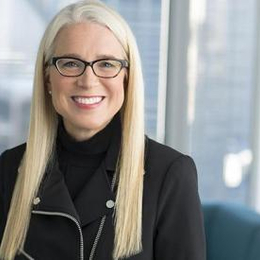Elevating the Latina Experience in Corporate America
When NEW published Advancing All Women, our initial study regarding the status of women of color in the American workplace, we found that without intervention, the number of women of color in senior positions would drop over the next 10 years without intervention. We knew that to continue our mission of Advancing All Women, a stronger base of research was needed into the unique experiences of women of color.
I am proud to say that the first study in that series of deeper dives is now available. A Foot in Two Worlds: Elevating the Latina Experience discusses the biases Latina women face, how they might be counteracted, and solutions for corporate business to better take advantage of their unique skills and abilities.
Though the Latina community spans many cultures and languages, we found common ground in how they are perceived by their non-Latinx coworkers, as well as how they want to shape their experience going forward.
Latinas in the Workplace
Among our findings was an interesting cultural clash between the cultural values of Latinas and the stock values of corporate America. We found that Latinas are often raised with collectivist cultural values, where the good of the group is valued over the success of the individual. This can sometimes result in a reluctance to self-promote, and a focus on achieving the best product possible without worrying about personal gain.
Study participants noted that this sometimes led to managers perceiving their Latina employees as unambitious or unassertive. The needed correction here is clear — their managers must learn to appreciate the powerful potential of these altruistic values, and not overlook these fully qualified women because they do not conform to the displays of “hunger” for promotion that their primarily white and male superiors expect.
Being Yourself at Work
The Latina women we interviewed cited a number of common experiences. One major takeaway was feeling as if they were being told, “Be yourself at work, as long as it conforms to our mainstream culture.” The attributes that set them apart from their white male counterparts were usually the ones pinpointed as areas for change.
Bias was also a major issue cited by our study participants. They described being discriminated against at work simply for having an accent, despite 80 percent saying they speak English “well” or “very well.” They also discussed “code-switching,” not just in language, but also “from fashion and expressiveness to facial expressions and physical proximity.”
Latina women earn 54 cents on the dollar compared to men, and while this discrepancy can be attributed to a number of other factors, it cannot be denied that these biases clearly have consequences.
We Can Change
Despite sometimes difficult environments, our study found that Latina women also see clear paths to improving workplaces, so their unique background and cultural values are an asset to their careers and to their companies.
Participants cited a lack of mentors and sponsors for them to work with, and an almost complete lack of sponsors from the same cultural background. By creating greater diversity in the C-suite, corporations can pave the way for greater inclusivity from the ground up.
This research study lays out concrete strategies for corporations to better support their Latina employees, and to strengthen themselves in the process. The good news? You can read the study in its entirety on the NEW website, completely free.
Our study has the potential to guide the future of Latinas in the workplace if businesses take these findings to heart. By not including Latinas fully in corporate life — by letting bias and preconceptions of a broad and varied culture cloud their vision — employers are missing out on the unique contributions Latinas bring to the table. With high emotional IQs and collectivist values, they can be managers and executives with empathy.
To serve women of color, corporate environments must be open to women of color. Can any business expect to meet revenue targets for their Latinx audiences without Latinas in the C-suite? Their buying power is on the rise, expected to reach $1.7 trillion by 2020, and they are looking for products and services that reflect their experiences.
If high-potential Latina employees grow disgusted with their environment, rightly so, and start their own businesses, the cost of not including them in corporate life will grow even more dramatic. Diversity and inclusion isn't just a buzzy phrase. It’s just good business — and it’s the right thing to do.
Editor’s note: The opinions expressed in this article are the author’s and do not necessarily reflect the views of Convenience Store News.



